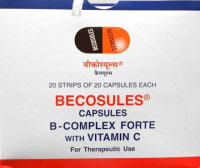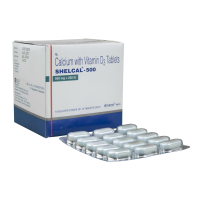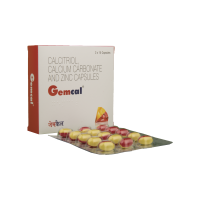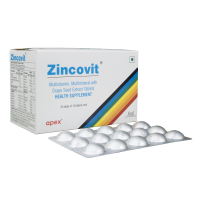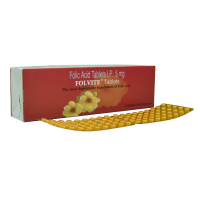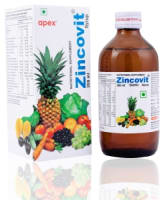USED FOR:
Hyperpigmentation (Dark skin patches)
Allergic disorders
Acne
COMPOSITION:
Hydroquinone Topical (NA)
Mometasone Topical (NA)
Tretinoin Topical (NA)
Therapeutic Uses:
derma

No interaction found

WEIGH RISKS VS BENEFITS
Femolink Cream may be unsafe to use during pregnancy.Animal studies have shown adverse effects on the foetus, however, there are limited human studies. The benefits from use in pregnant women may be acceptable despite the risk. Please consult your doctor.

Femolink Cream is probably safe to use during lactation. Limited human data suggests that the drug does not represent a significant risk to the baby.The baby's skin should not come into direct contact with the treated area of skin. Water-miscible cream/gel is preferred as ointments may expose the baby to harmful effects of Femolink Cream via licking.

Do not drive unless you are feeling well.Your ability to drive or operate machinery might be impaired while you are taking Femolink Cream especially if you are feeling dizzy or have a severe headache.

Femolink Cream is probably safe to use in patients with kidney disease. Limited data available suggests that dose adjustment of Femolink Cream may not be needed in these patients. Please consult your doctor.

Femolink Cream is probably safe to use in patients with liver disease. Limited data available suggests that dose adjustment of Femolink Cream may not be needed in these patients. Please consult your doctor.
Uses of Diclofenac
Diclofenac is used in fever, headache, arthralgia, muscle pain, dental pain, post operative pain, pain during menstruation, osteoarthritis, rheumatoid arthritis, ankylosing spondylitis and gout.
Uses of Hydroquinone Topical
Hydroquinone Topical is used in the treatment of hyperpigmentation and melasma (Dark patches on the skin).
How to use Diclofenac
Take this medicine in the dose and duration as advised by your doctor. Swallow it as a whole. Do not chew, crush or break it.
How to use Hydroquinone Topical
This medicine is for external use only. Use it in the dose and duration as advised by your doctor. Check the label for directions before use. Clean and dry the affected area and apply the cream. Wash your hands after applying, unless hands are the affected area.
How Kloser D Tablet works
Diclofenac is a non-steroidal anti-inflammatory drug (NSAID). It works by suppressing the production of chemical messengers (prostaglandins) that cause inflammation (redness and swelling), fever and pain.
How Femolink Cream works
Hydroquinone Topical belongs to the class of medications called as melanin synthesis inhibitors. It bleaches the skin by reducing the accumulation of skin pigment called melanin that causes darkening of the skin.
Common Abdominal pain, Constipation, Diarrhoea, Epigastric pain, Flatulence, Nausea, Vomiting, Indigestion.
Common Skin irritation.
Expert advice for Diclofenac
It should be taken with food or milk to avoid getting an upset stomach. It can cause serious complications like stomach bleeding and kidney problems if taken for a long time. Diclofenac can raise a risk of blood clots, heart attack, or a stroke. Inform your doctor if you are pregnant or planning to conceive or breastfeeding. Inform your doctor if you have ever been diagnosed with kidney or liver problems.
Expert advice for Hydroquinone Topical
Use of sunscreen is a must while using hydroquinone topical. Avoid unnecessary sun exposures and cover the treated areas with clothing. Even minimal exposure to sunlight can reverse the bleaching effect of hydroquinone.
Discontinue use and contact your doctor immediately if you develop allergic skin reaction or notice blue-black darkening of skin upon use of hydroquinone.
Avoid direct contact of cream with your eyes. In case of direct contact, wash your eyes with water immediately and seek immediate medical attention.
Do not use hydroquinone creams on broken, irritated or injured skin.
Do not use hydroquinone creams with other creams that contain peroxides (hydrogen peroxide/benzoyl peroxide), resorcinol, phenol, or salicylic acid as it may cause unwanted side effects.
You may be advised by your doctor to perform a skin sensitivity test to avoid any allergic reaction
Use in children aged below 12 years is not recommended unless under the strict supervision of doctor.
Tell your doctor if you are pregnant or planning to become pregnant or breastfeeding.
It should not take if patient is allergic to hydroquinone or any of its ingredients.
Q. Can Diclofenac be used along with warfarin?
No. Using Diclofenac together with warfarin can increase the risk of serious bleeding from the stomach (Higher than users of either drug alone). Inform your doctor before starting these medications.
Q. Is Diclofenac a painkiller?
Yes. Diclofenac is a pain killer. In fact, it belongs to the class of drugs called non-steroidal anti-inflammatory drugs (NSAIDs). It is commonly used for the treatment of pain in osteoarthritis, rheumatoid arthritis and spondylitis.
Q. Is Diclofenac a narcotic?
No, Diclofenac is not a narcotic. Narcotics are drugs with sleep inducing properties, usual derivatives of Opium like Heroin and Morphine.
Q. Can I use Diclofenac along with vitamins?
Yes, Diclofenac can be taken with vitamins. No drug-drug interactions or any harmful effects have been reported when they are used together.
Q. Can Diclofenac be used for the treatment of hepatitis?
No, Diclofenac is not approved for the treatment of hepatitis. Hepatitis is a condition where the liver is inflamed. Diclofenac can, in fact, cause harm to the liver as a side effect.
Q. Can Diclofenac be used after C-section?
Yes, Diclofenac is a pain killer. C-section is the short name for Cesarean Section which is an operative procedure to deliver the baby through the mother's abdomen and uterus. Diclofenac can be used to treat the pain that may occur after the operation.
Q. Can I take Diclofenac along with misoprostol?
Yes. It can be taken together. Misoprostol protects the stomach from irritating gastric effects of Diclofenac. The combination of medication is used to treat arthritis in patients at high risk of getting stomach/intestinal ulcers and complications from the ulcers (such as bleeding).
Q. Can I take Diclofenac while I am on thyroxine?
Yes, Diclofenac can be taken with thyroxine. No drug-drug interactions or any harmful effects have been reported when they are used together.
Q. Why Diclofenac should be stopped before surgery?
Since Diclofenac has been shown to have blood thinning effects, it can increase the risk of bleeding. Therefore, it is stopped before surgery to prevent excessive loss of blood.
Q. What are the contraindications for Diclofenac?
Diclofenac should not be used if there is an allergic reaction (hypersensitivity) to it, or other pain killers, active ulcer in the stomach, bleeding from the stomach, history of severe heart failure, liver failure, kidney failure and or heart attack.
Q. Can Diclofenac affect the chance of conceiving?
Yes. Diclofenac can sometime cause reversible infertility. Diclofenac by its mechanism of action, may delay or prevent rupture of ovarian follicles, which has been associated with reversible infertility in some women. Consult your doctor before starting this medication.
Q. Why does Diclofenac cause an ulcer?
Diclofenac can cause damage to the lining cells of the stomach by several mechanisms, including the irritant effect on the cells, breaking of the protective barrier properties of lining cells, suppression of prostaglandin production of the stomach, reduction of stomach mucosal blood flow and interference with the repair of superficial injury of the stomach lining.
Q. Why is Diclofenac contraindicated in asthma?
Some patients with asthma are hypersensitive to non-steroidal anti-inflammatory drugs (NSAID) like aspirin which can lead to acute attacks of asthma. Consult your doctor before starting this medication.
Q. Is Diclofenac good for back pain?
Yes, Diclofenac has been found to be effective to reduce back pain. Diclofenac is a pain killer that belongs to the NSAIDs (Non-Steroidal Anti-Inflammatory) class. Other NSAIDs have also been found to be useful in back pain eg. Ibuprofen and Naproxen.
Q. Can I use Diclofenac during my fever treatment?
Yes, Diclofenac can reduce fever. However, commonly used to reduce the pain, particularly that which is seen with Osteoarthritis, Rheumatoid Arthritis and Ankylosing spondylitis.
Q. Can I use Diclofenac to treat a sore throat?
Sore throat is mostly caused by bacteria so antibiotics are given to treat a sore throat whereas Diclofenac is a pain killer so it can be given in cases of throat pain associated with it but only under the prescription of a doctor.
Q. Can I use Diclofenac to treat urinary tract infections (UTI)?
Diclofenac can be used to treat the pain associated with urinary tract infection (UTI) but for complete treatment, a course of antibiotics will be required.
Q. Can Diclofenac cause sedation?
Diclofenac is not known to cause sedation. There have been rare, an isolated case report of sedation with the drug.
Q. Can I take Diclofenac for kidney stones?
Yes,Diclofenac can be used to relieve the pain due to kidney stones. However, there is also a risk of kidney damage with Diclofenac as its side effect. It is advised not to take Diclofenac for a prolonged time for this condition without adequate monitoring.
Q. Can I use Diclofenac for the treatment of arthritis?
Yes, Diclofenac is commonly used for the treatment of pain in osteoarthritis, rheumatoid arthritis, and spondylitis.It belongs to the class of drugs called non-steroidal anti-inflammatory drugs (NSAIDs). .
Q. Can I use Diclofenac with diuretics?
No, Diclofenac should not be used with diuretics. Diclofenac reduces the natriuretic effect of furosemide and thiazides diuretics in some patients. This response has been attributed to inhibition of renal prostaglandin synthesis.
Q. Can I use Diclofenac with mifepristone?
These drugs should not be used together as the effect of mifepristone may be lowered by Diclofenac. Mifepristone is used for medical abortion.
Q. Can I use Diclofenac with lithium?
No.These drugs should not be used together as Diclofenac increases the blood levels of lithium which may further increase the side effects.
Q. Is hydroquinone safe/good for skin and face?
Yes. Hydroquinone is safe if used as directed, for the prescribed duration by your doctor. Please limit sun exposures and apply sunscreens or cover the treated area with protective clothing. Even minimal exposure to sun can reverse the bleaching effect of hydroquinone
Q. Is hydroquinone topical a steroid?
No. Hydroquinone does not have a structure or effect similar to steroids
Q. Is hydroquinone banned in India?
No. Hydroquinone is available and is not a banned drug in India
Q. Is hydroquinone carcinogenic/does hydroquinone cause cancer?
Hydroquinone should not be used in excess quantity for long duration, as it is associated with possible carcinogenicity
Q. Is hydroquinone toxic?
No. Hydroquinone is not toxic if used as directed, for the prescribed duration by your doctor. It is available as creams and meant for external use on the skin only
Q. Does hydroquinone lighten/bleach your skin?
Hydroquinone is used to bleach or lighten dark patches of skin
Q. Does hydroquinone lighten skin permanently?
The effect of hydroquinone is reversible (reversible depigmentation) with time and exposure to sun and therefore not permanent
Q. Does hydroquinone make skin darker?
Hydroquinone may cause blue-black darkening of skin. This is not the normal effect of hydroquinone. Discontinue use and contact your doctor immediately if you notice darkening of skin upon use of hydroquinone
Q. Does hydroquinone help acne?
No. It has no known effect in the treatment of acne.
Uses of Mometasone Topical
Mometasone Topical is used in the treatment of allergic disorders.
How to use Mometasone Topical
This medicine is for external use only. Use it in the dose and duration as advised by your doctor. Check the label for directions before use. Clean and dry the affected area and apply the cream. Wash your hands after applying, unless hands are the affected area.
How Femolink Cream works
Mometasone Topical is a topical corticosteroid (anti-inflammatory medicine). It works by reducing redness, itching, and swelling caused by various skin conditions.
Common Skin thinning, Contact dermatitis.
Q. Is mometasone a steroid drug?
Yes. Mometasone is a steroidal drug
Q. Is mometasone the same as hydrocortisone?
No. Mometasone and hydrocortisone are different drugs; although both are steroids
Q. Does mometasone topical treat ringworm/acne?
Mometasone topical does not treat ringworm/acne. It only treats the symptoms of inflamed skin
Q. Does mometasone topical lighten skin?
Yes. Mometasone topical may lighten the area of skin which is darkened due to any infection.
Uses of Tretinoin Topical
Tretinoin Topical is used in the treatment of acne.
How to use Tretinoin Topical
This medicine is for external use only. Use it in the dose and duration as advised by your doctor. Check the label for directions before use. Clean and dry the affected area and apply the cream. Wash your hands after applying, unless hands are the affected area.
How Femolink Cream works
Tretinoin Topical works by slowing the production of certain natural substances that can cause acne.
Expert advice for Tretinoin Topical
Apply a thin layer of Tretinoin Topical once daily, before bedtime, to the affected area of skin. You may experience mild skin irritation on applying Tretinoin Topical. Exposure to sunlight may cause skin irritation. Hence, avoid this type of exposure while using Tretinoin Topical. The color and texture of your skin may change on long-term use. Not advisable for women who are or plan to become pregnant. Certain other skin medications such as benzoyl peroxide may inactivate Tretinoin Topical and therefore should not be used simultaneously.
Q. Is tretinoin topical a steroid/ retin a/ retin a/ a retinoid/retinol?
Tretinoin topical is not a steroid. It is a form of vitamin A (Retin-A) and belongs to a group of medications called as ‘retinoids'. Tretinoin and retinol are similar but tretinoin tends to be a bit more aggressive than retinol which is a bit more suitable for those with sensitive skin
Q. Is tretinoin cream safe?
Tretinoin is safe if taken at recommended doses and duration. The gel form should be used with extreme caution in children younger than 12 years
Q. Does tretinoin cream work/ is tretinoin cream good for acne/acne scars/lighten skin/thin the skin/work on wrinkles/fade dark spots/clog pores/cause breakouts?
Tretinoin cream works effectively in most of the patients. It is useful for treating most of the skin related issue like acne, acne scars, skin lightening, removing wrinkles, fade dark spots, clog pores, etc. It does not cause breakouts but helps the skin in healing it
Q. Is tretinoin available over the counter?
It is available only as per doctor's prescription.


 Femolink Cream
Femolink Cream  Bookmark
Bookmark
